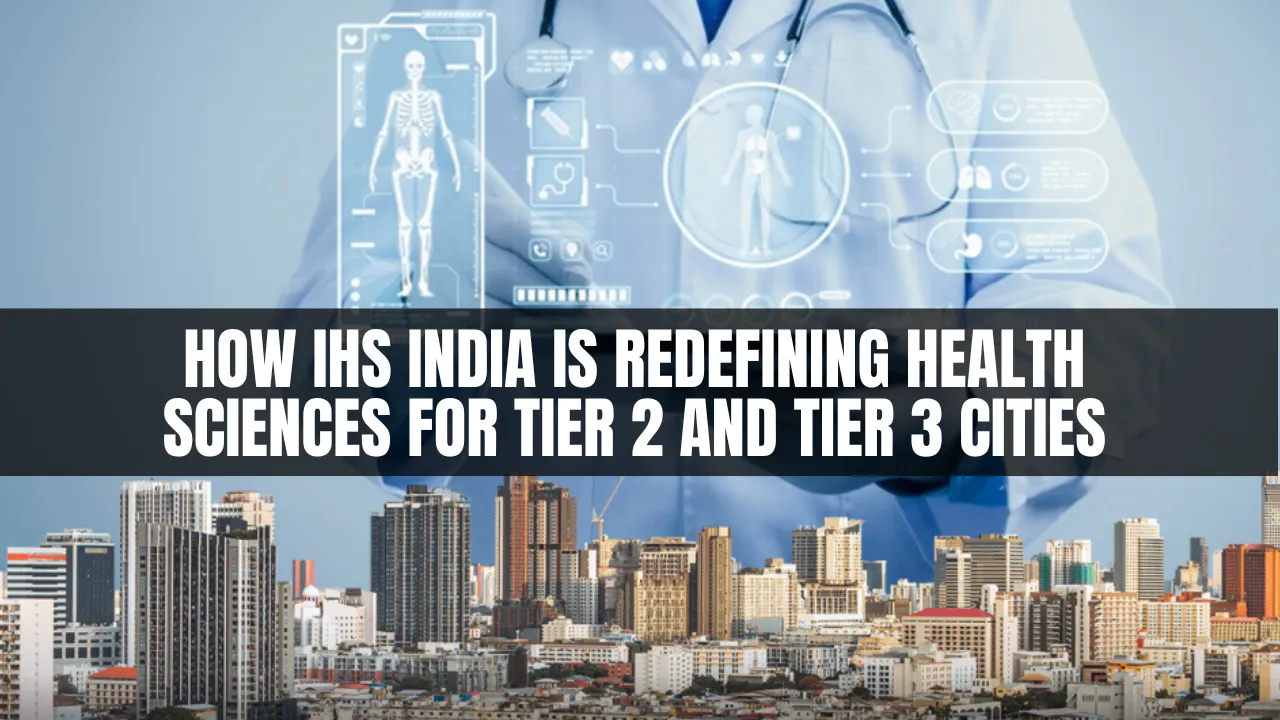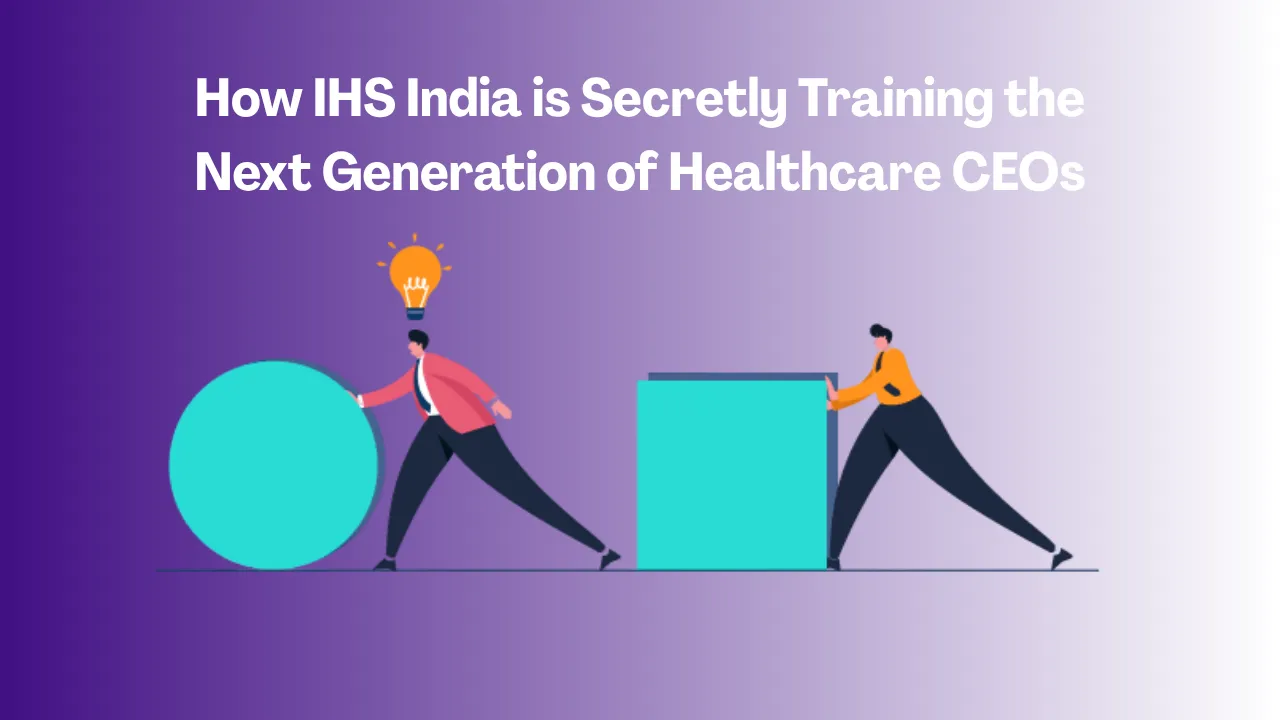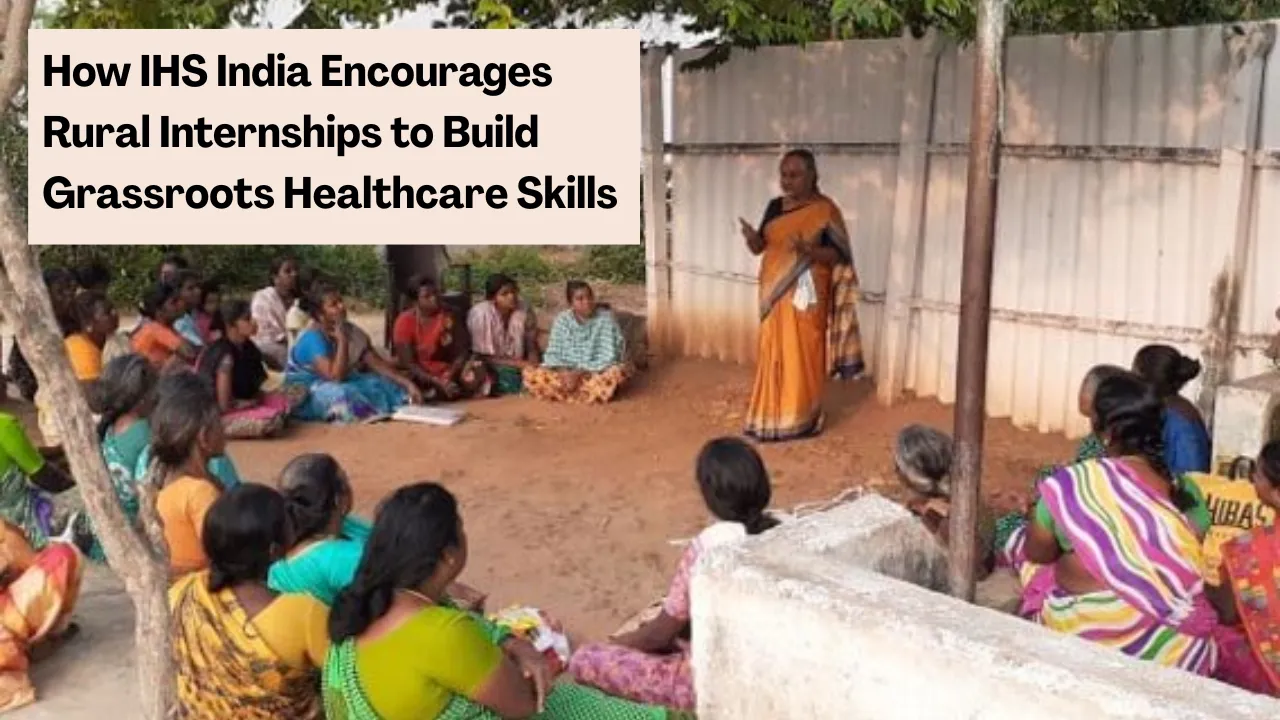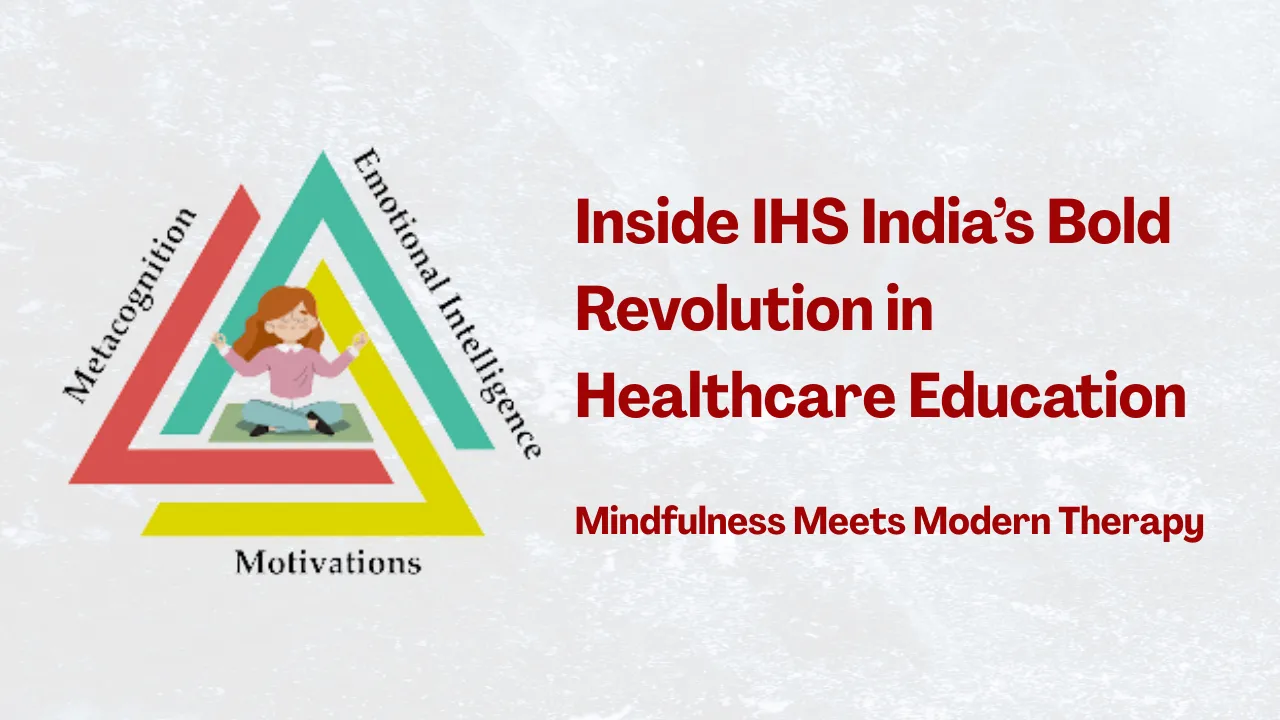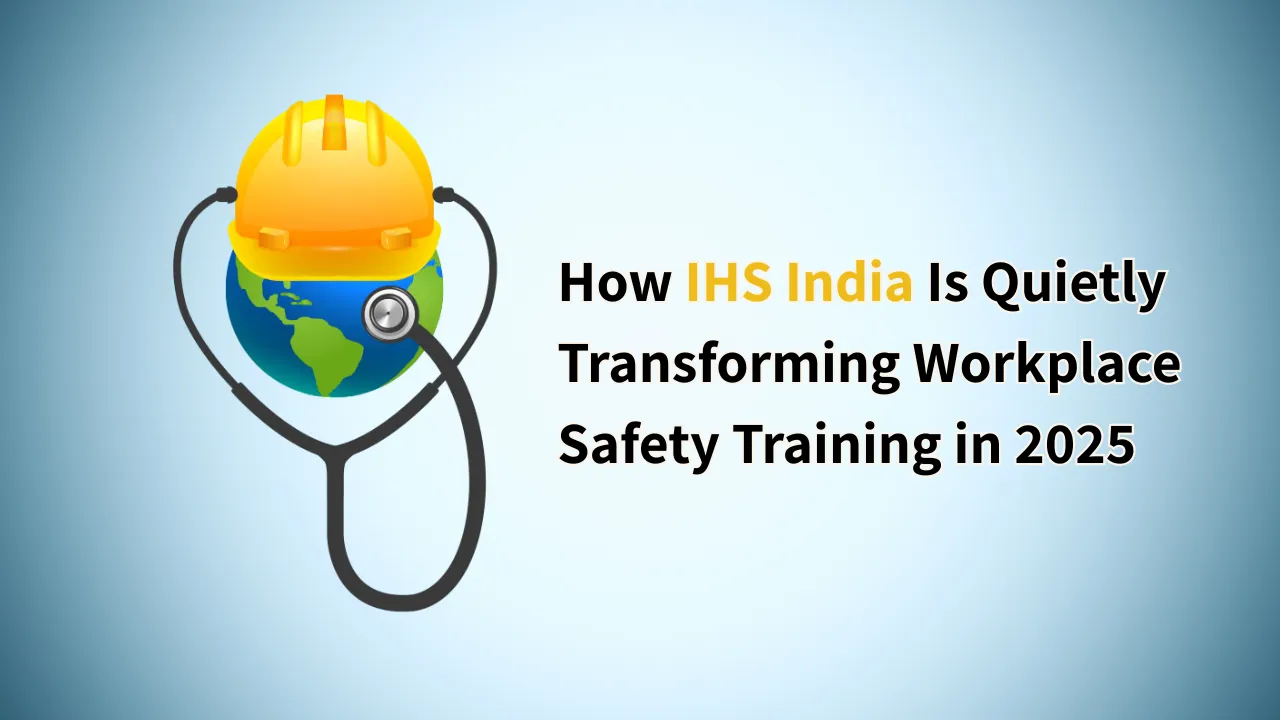IHS India is emerging as a revolutionary force in the landscape of healthcare education, particularly in regions that have long been neglected. With a strong commitment to empowering smaller cities, it is not just producing healthcare professionals—it is creating local ecosystems where quality medical services are no longer a luxury. The institution’s approach aligns with a growing demand for inclusive and decentralized health development in India.
The goal of this article is to explore how IHS India is transforming health sciences for tier 2 and tier 3 cities. We’ll discuss its educational models, focus on accessibility, partnerships, and how it’s strategically improving rural and semi-urban healthcare infrastructure by preparing a skilled workforce. A detailed breakdown of its impact, offerings, and mission is included to offer a full picture of its role in reshaping India’s health education.
IHS India: Bridging the Health Education Divide
At the heart of IHS India lies a bold vision—to democratize health sciences education for areas that traditionally lag behind due to infrastructural and economic constraints. Unlike many institutions that centralize learning in metros, IHS India builds its roots in tier 2 and tier 3 cities, offering job-oriented medical education to local youth. It does not just offer knowledge but develops healthcare leaders in underrepresented communities. This shift from urban-centric healthcare training to regional empowerment makes IHS India a trailblazer in rural healthcare advancement.
Overview of IHS India’s Educational and Community Impact
| Feature | Description |
| Focus Areas | Allied health sciences, paramedical courses, diagnostic training |
| Locations | Tier 2 and Tier 3 cities across multiple states |
| Course Types | Diplomas, Bachelor’s programs, and certifications |
| Key Specializations | Radiology, Lab Technology, Optometry, Physiotherapy |
| Learning Approach | Blended learning with practical internships |
| Accessibility | Affordable fees, regional language support, local placements |
| Industry Collaboration | Ties with hospitals, diagnostics labs, and clinics |
| Placement Support | Career services and internship guidance |
Empowering Smaller Cities Through Education
One of the most significant challenges faced by tier 2 cities and tier 3 cities is access to quality healthcare training. Often, students from these areas are forced to relocate to metros, which adds financial pressure and emotional strain. IHS India reverses this model by delivering allied health courses within these underserved communities, giving youth a chance to pursue careers in health sciences education without leaving home.
By establishing its centers in developing regions, IHS India makes skill-based medical education accessible and sustainable. It ensures that more families can afford to educate their children while also addressing the local shortage of trained professionals. Students not only study but often end up serving in their own neighborhoods, improving overall community health.
Affordable and Job-Oriented Courses
Unlike traditional colleges that lean heavily on theory, IHS India focuses on skill-based learning. The courses are structured to match the actual needs of healthcare employers. This means that students graduate not just with a certificate, but with hands-on experience and real-world knowledge.
Popular programs include medical lab technology, radiography, and emergency medical services, all designed to meet immediate employment demands. By doing this, IHS India ensures that students in tier 2 and tier 3 cities don’t just receive an education—they receive a career path.
The programs are priced affordably, with flexible payment options and short course durations, making them attractive for first-generation learners and students from modest backgrounds.
Use of Technology in Learning
Incorporating technology into medical education in India is not a luxury anymore—it’s a necessity. IHS India integrates digital tools like e-learning platforms, virtual labs, and online assessments into its curriculum. This allows students, even in remote towns, to access expert faculty, up-to-date content, and simulations that prepare them for real-life clinical work.
The smart use of tech also gives students a head start in understanding the equipment and digital systems they will use in hospitals and labs. This digital-first strategy brings equity into education and helps bridge the urban-rural learning divide.
Creating Local Job Opportunities
One of the core benefits of IHS India’s approach is how it feeds directly into the local job market. By producing job-ready health professionals who are willing to work in their home regions, IHS India is solving two problems: lack of trained professionals and lack of local employment.
It works with hospitals, clinics, and diagnostic centers across smaller cities, ensuring students are placed in practical internships and often hired post-training. This local loop of education and employment keeps talent within the region and improves healthcare delivery from the ground up.
Focused Skill Development and Internships
Every course offered at IHS India emphasizes hands-on training. Theory is only a part of the process; the real learning happens when students practice what they’ve studied. Internships are embedded into the curriculum, allowing students to gain work experience in real-world healthcare environments.
This model improves confidence, technical skill, and patient interaction capabilities. The internship model also builds a strong work ethic and prepares students for immediate integration into healthcare teams after graduation.
Government Collaboration and Recognition
IHS India aligns itself with key government missions aimed at boosting rural healthcare infrastructure. Many of its programs are designed to meet national healthcare goals, such as expanding access to diagnostics, emergency care, and primary health services in underserved regions.
It operates in line with education boards and regulatory bodies, ensuring that its courses are recognized and valued by employers. This official recognition is crucial for long-term job security and professional growth in both the public and private sectors.
Key Benefits Offered by IHS India
- Local Access to Advanced Education: Brings high-quality health sciences training directly to smaller cities and towns.
- Job Placement Support: Offers personalized career guidance and job placement services in hospitals and clinics nearby.
Making Healthcare Reach Everyone
In India, healthcare inequality often starts with education. When students in remote towns can’t access proper training, the local healthcare system suffers. IHS India corrects this by delivering medical education to regions where it’s most needed.
Its localized training model ensures that every village, town, and small city can have its own team of trained professionals. This results in faster care, better diagnosis, and reduced dependency on urban hospitals for basic needs.
Transforming Futures Through Health Sciences
Beyond education, IHS India is building an ecosystem of growth, confidence, and resilience. It proves that with the right model, tier 2 and tier 3 cities can become hubs of healthcare excellence. Thousands of students now have the chance to pursue meaningful, respected careers while serving their communities.
As more people enroll and more centers open, IHS India is on the path to transform how India educates, trains, and retains healthcare professionals in every corner of the country.
FAQs
What is the main focus of IHS India?
IHS India focuses on providing skill-based, job-ready healthcare education in tier 2 and tier 3 cities across India.
Are the courses suitable for students from rural backgrounds?
Yes, the courses are designed for accessibility, with affordable fees and content that is easy to understand, even for first-time learners.
Do IHS India courses include practical training?
Yes, every course includes internships or hands-on sessions in real clinical environments.
Are the programs recognized for employment in hospitals?
Yes, the programs are certified and aligned with government health missions and recognized institutions.
Does IHS India offer placement support?
Yes, it actively supports students with job placement opportunities through its network of partner hospitals and clinics.
Conclusion
IHS India is redefining how and where healthcare education happens in India. By shifting the focus from metros to smaller towns and cities, it is not only training students but also strengthening local healthcare systems. Its practical, affordable, and technology-backed approach ensures that even remote areas can produce skilled healthcare workers. As it continues to expand, IHS India represents a future where no student is left behind, and no patient is left without care.
If you’re curious about how this model can change lives or wish to explore a career in healthcare, dive deeper into the opportunities IHS India offers. Share this story, spread the word, and be part of a healthier tomorrow.
